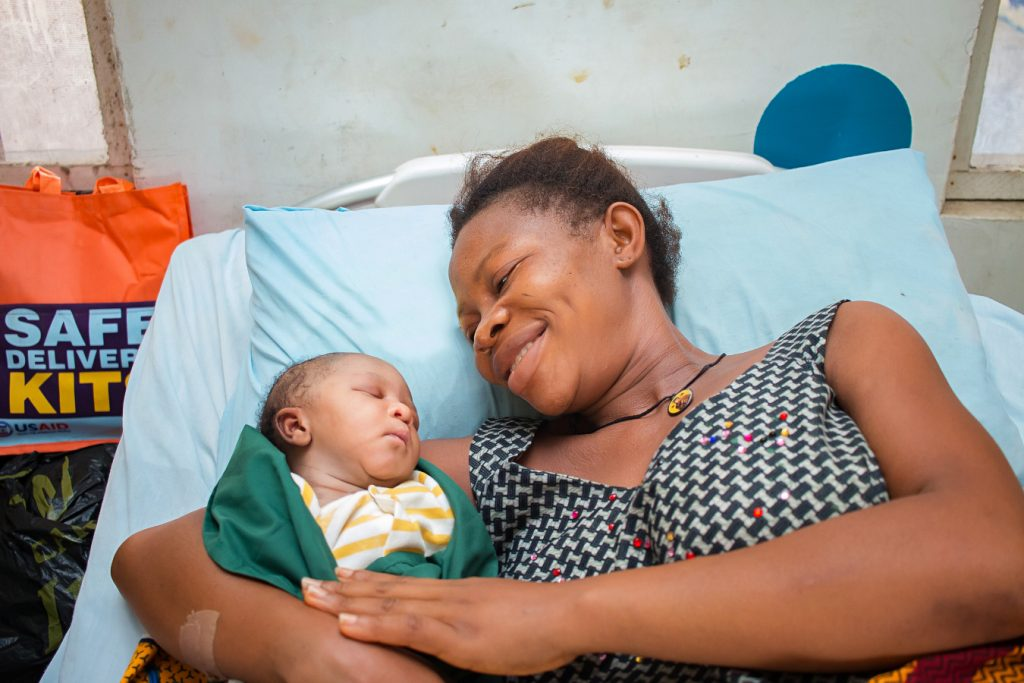By Isaac Atunlute
At least 1,000 pregnant women in Cross River State have received free antenatal kits through a life-saving initiative designed to not only reduce maternal deaths but to also restore dignity and improve access to healthcare in vulnerable communities.
The programme is the outcome of a multi-stakeholder collaboration involving the Cross River State Government under Governor Bassey Otu, his wife Bishop Eyoanwan Bassey Otu, the Cross River State Primary Health Care Development Agency, the Akamkpa Local Government Council and development partners such as Médecins Sans Frontières and CHAMPS.
“This initiative demonstrates the governor’s commitment to safeguarding maternal and child health at the grassroots level,” said Maurice Asengita, Akamkpa’s health supervisor, on Thursday while distributing the kits.
Each kit contains essential items–iron supplements, multivitamin tablets, hygiene items, sterile gloves, and educational materials on pregnancy care. These are aimed at encouraging early clinic attendance, helping monitor high-risk pregnancies, and preparing women for safer deliveries.
According to the World Health Organisation, Nigeria accounts for nearly 20% of global maternal deaths. In rural towns like Akamkpa, poverty, illiteracy, and inaccessibility of health centers combine to create a deadly mix of avoidable deaths. This initiative represents a strategic shift towards localised preventive care.
Health professionals say such efforts have ripple effects. The programme builds trust in the healthcare system, encouraging more women to begin antenatal visits earlier, return for regular check-ups, and seek professional help in the event of complications.
Such frequent interactions with trained health workers can be the difference between life and death in high-risk pregnancies.
Agnes Itabang, the deputy health director for the local government, emphasized that the program would “improve pregnancy outcomes” and encourage better healthcare-seeking behaviours among women.
The initiative is also a shift in approach–delivering high-engagement, low-cost, high-value interventions in communities that need them most. This aligns with the people-first philosophy of Governor Otu and his wife, who have pushed for reducing preventable maternal and infant deaths.
However, there are problems. For such programmes to become sustainable, experts argue that they must be included in the state’s health budget, scaled to all local government areas, and supported through continued coordination with NGOs and frontline workers.
But hope is already blooming in Akamkpa. For the 1,000 women currently visiting clinics with not only kits in hand but renewed confidence in the quality of healthcare they’re receiving, the journey to safe motherhood no longer feels out of reach.
A life-saving initiative in Cross River State, Nigeria, has provided at least 1,000 pregnant women with free antenatal kits to reduce maternal deaths and improve access to healthcare in vulnerable communities. This program results from collaboration between the Cross River State Government, led by Governor Bassey Otu and his wife, relevant state health agencies, local government, and development partners such as Médecins Sans Frontières and CHAMPS. The kits include iron supplements, multivitamins, hygiene items, sterile gloves, and educational materials to encourage early clinic visits, help monitor high-risk pregnancies, and prepare women for safer deliveries.
In Nigeria, where nearly 20% of global maternal deaths occur, this program represents a strategic shift towards preventive care in rural towns like Akamkpa, where poverty, illiteracy, and inaccessible health centers contribute to maternal mortality. The initiative aims to build trust in the healthcare system, encouraging women to seek early and regular antenatal care, which is crucial for managing high-risk pregnancies. Local health professionals emphasize the program's potential to improve pregnancy outcomes and foster better healthcare-seeking behaviors among women.
However, the long-term sustainability of such programs depends on their inclusion in the state health budget and their expansion to all local government areas. Continuous collaboration with NGOs and healthcare workers is also essential for ongoing success. Despite these challenges, the initiative has already instilled hope and confidence in the local healthcare system among the participating women, making safer motherhood more attainable.






